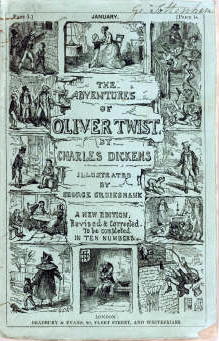|
Baby Farming
Baby farming is the historical practice of accepting custody of an infant or child in exchange for payment in late- Victorian Britain and, less commonly, in Australia and the United States. If the infant was young, this usually included wet-nursing (breast-feeding by a woman not the mother). Some baby farmers "adopted" children for lump-sum payments, while others cared for infants for periodic payments. Description Though baby farmers were paid in the understanding that care would be provided, the term "baby farmer" was used as an insult, and improper treatment was usually implied. Illegitimacy and its attendant social stigma were usually the impetus for a mother's decision to put her children "out to nurse" with a baby farmer, but baby farming also encompassed foster care and adoption in the period before they were regulated by British law. Wealthier women would also put their infants out to be cared for in the homes of villagers. Claire Tomalin gives a detailed account of ... [...More Info...] [...Related Items...] OR: [Wikipedia] [Google] [Baidu] |
Infant
An infant or baby is the very young offspring of human beings. ''Infant'' (from the Latin word ''infans'', meaning 'unable to speak' or 'speechless') is a formal or specialised synonym for the common term ''baby''. The terms may also be used to refer to juveniles of other organisms. A newborn is, in colloquial use, an infant who is only hours, days, or up to one month old. In medical contexts, a newborn or neonate (from Latin, ''neonatus'', newborn) is an infant in the first 28 days after birth; the term applies to premature, full term, and postmature infants. Before birth, the offspring is called a fetus. The term ''infant'' is typically applied to very young children under one year of age; however, definitions may vary and may include children up to two years of age. When a human child learns to walk, they are called a toddler instead. Other uses In British English, an ''infant school'' is for children aged between four and seven. As a legal term, ''infancy'' is more lik ... [...More Info...] [...Related Items...] OR: [Wikipedia] [Google] [Baidu] |
Frances Knorr
Frances Lydia Alice Knorr (10 December 1868 – 15 January 1894) was an English migrant to Australia, known as the Baby Farming Murderess. She was found guilty of strangling an infant and hanged on Monday 15 January 1894. Early life and marriage Frances Knorr was born as Minnie Thwaites in London, England on 10 December 1868. She immigrated to Sydney, in the Colony of New South Wales, in 1887. Her father was reportedly William Sutton Thwaites, a tailor from Chelsea. Initially she worked as a domestic servant and married Rudolph (or "Randolph") Knorr, a German immigrant. She later had an affair with one Edward Thompson and moved to Melbourne; however, the short-lived affair was not successful and Knorr had to find a means to support herself and her daughter. Baby farming In February 1892, Australia was in the midst of a depression and jobs were scarce when Rudolph Knorr was sent to prison for selling furniture he had bought on hire purchase. Pregnant and penniless, Frances decide ... [...More Info...] [...Related Items...] OR: [Wikipedia] [Google] [Baidu] |
Oliver Twist
''Oliver Twist; or, The Parish Boy's Progress'', Charles Dickens's second novel, was published as a serial from 1837 to 1839, and as a three-volume book in 1838. Born in a workhouse, the orphan Oliver Twist is bound into apprenticeship with an undertaker. After escaping, Oliver travels to London, where he meets the "Artful Dodger", a member of a gang of juvenile pickpockets led by the elderly criminal Fagin. ''Oliver Twist'' unromantically portrays the sordid lives of criminals, and exposes the cruel treatment of the many orphans in London in the mid-19th century. The alternative title, ''The Parish Boy's Progress'', alludes to Bunyan's ''The Pilgrim's Progress'', as well as the 18th-century caricature series by painter William Hogarth, ''A Rake's Progress'' and ''A Harlot's Progress''. In an early example of the social novel, Dickens satirises child labour, domestic violence, the recruitment of children as criminals, and the presence of street children. The novel may have ... [...More Info...] [...Related Items...] OR: [Wikipedia] [Google] [Baidu] |
Charles Dickens
Charles John Huffam Dickens (; 7 February 1812 – 9 June 1870) was an English writer and social critic. He created some of the world's best-known fictional characters and is regarded by many as the greatest novelist of the Victorian era.. His works enjoyed unprecedented popularity during his lifetime and, by the 20th century, critics and scholars had recognised him as a literary genius. His novels and short stories are widely read today. Born in Portsmouth, Dickens left school at the age of 12 to work in a boot-blacking factory when his father was incarcerated in a debtors' prison. After three years he returned to school, before he began his literary career as a journalist. Dickens edited a weekly journal for 20 years, wrote 15 novels, five novellas, hundreds of short stories and non-fiction articles, lectured and performed readings extensively, was an indefatigable letter writer, and campaigned vigorously for children's rights, for education, and for other social ... [...More Info...] [...Related Items...] OR: [Wikipedia] [Google] [Baidu] |

